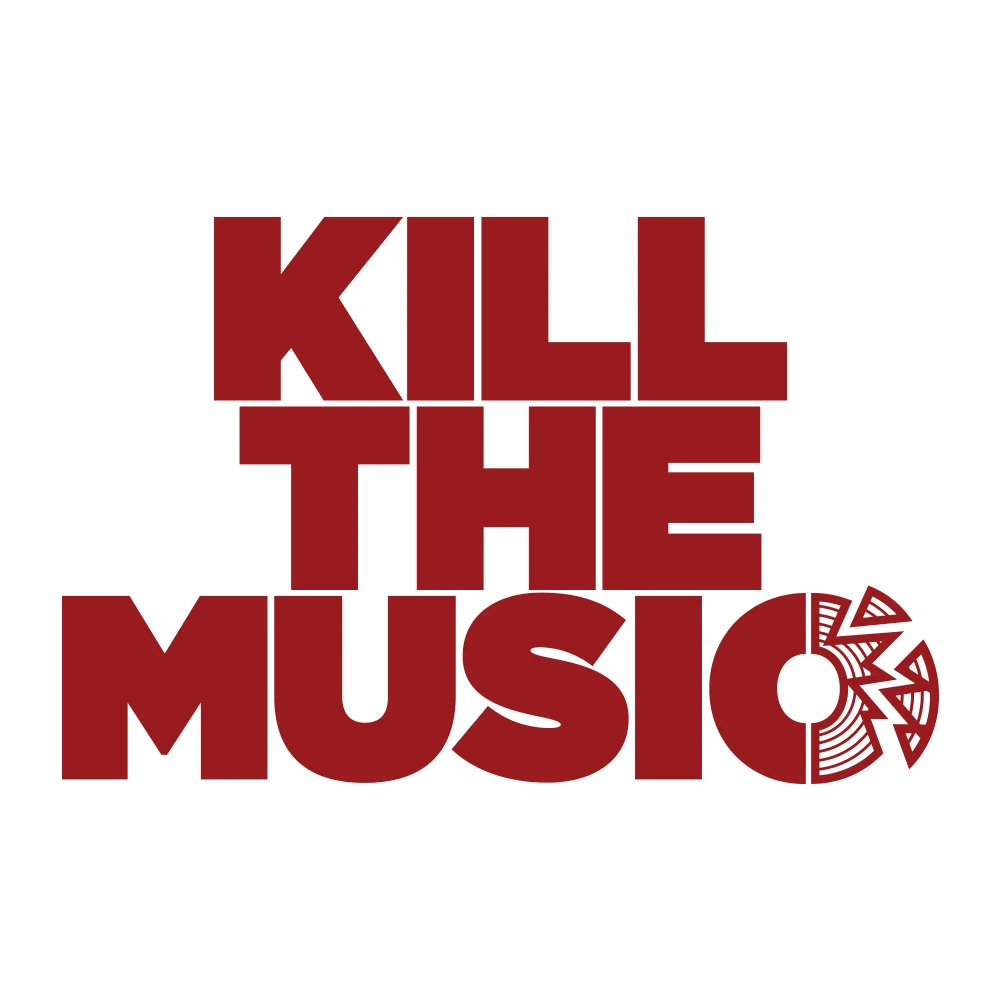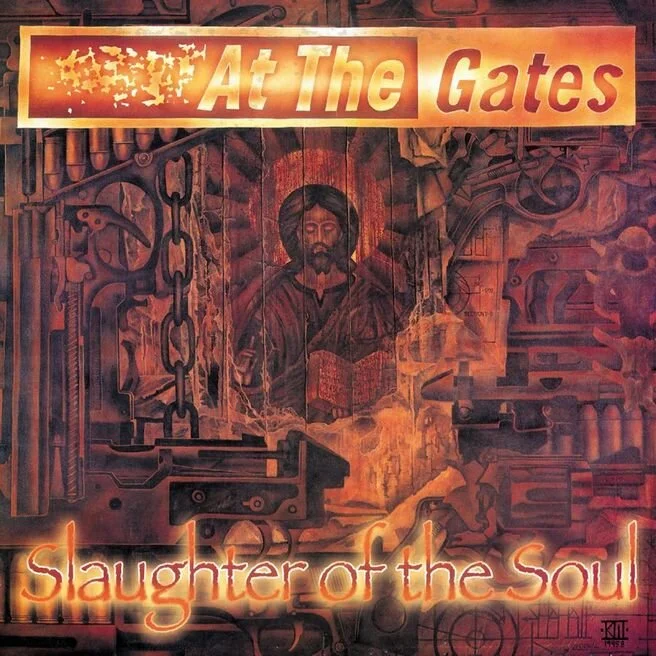At The Gates' highly influential fourth album, Slaughter of the Soul turned twenty five last year and we have commentary on the album from guitarist Martin Larsson. Enjoy the read and let us know your thoughts on Slaughter of the Soul twenty five years later.
First of all, how does it feel knowing Slaughter of the Soul turned 25 last year?
I don't know. I guess we don't think a lot about it. But it's a solid album and we still enjoy playing the songs live, so that should mean something. I think mostly we feel privileged that people still care a quarter of a century later.
How did you feel when the album came out?
Probably a combination of exhaustion and excitement. We worked extremely hard rehearsing and recording the album and the result was at the very limit of what we could achieve at the time.
Where do you think the album fits in the band's legacy?
Whether we like it or not (I'm not saying we don't), SotS seems to be the album we will be remembered by. Please don't take this the wrong way, we're lucky to be remembered at all, but also it's just one album out of many. As happy as I am with that album, it only represents a part of what At The Gates is.
How did the band approach writing? What inspired the lyrics?
We were coming out of a pretty rough time as a band making SotS. So it was kind of a make or break album, which ironically turned out to be both. We turned back to all the iconic albums we grew up with for inspiration, and that's the origin of that typical sound. When we got into music we were intrigued and captivated by Priest, Maiden, Accept, Sabbath and all those bands.
Then as we grew up metal kept getting harder, faster and heavier, and we were eagerly following the evolution. So when we made SotS, not knowing if we would ever get the chance to make another album, we wanted to make it fucking count.
We aimed to make a classic album like the ones that had formed us, but by then all that classic metal had been filtered, first by Metallica, Slayer and the likes, then by even more extreme thrash, and eventually by the whole underground death metal scene. So it's an amalgamation of all that. As for lyrical inspiration, I can't really remember what Tompa read at the time, but the quotes in the lyric sheet gives a hint at least. Rhinehart, Burroughs, Bukowski, Roky Erickson etc.
But Tompa has always been a voracious reader, so that's just a small part of it. Also life in general was a huge inspiration, I'm guessing. We were all becoming adults and all the emotions that involves surely had to have a great impact.
Do any of the themes touched on the album still hold relevant for you?
Yes, definitely. It's a very human album. And lyrically probably the most direct we've made. I think there's something in there that speaks to most of us.
What were your hopes and expectations for the record during the writing and recording process?
I can't remember anything else than wanting to make a classic metal album that would stand the test of time.
When you were in the studio, how was the morale of everyone?
As I said, the year previous to recording the album had been a pretty miserable one. But on the other hand we had a new record deal with Earache, which was such a relief. Now we knew we had a good chance to reach out to a lot of people. It was a really dedicated, determined environment. We worked round the clock for five weeks, which was much more time than we ever put in before.
When was the last time you listened to the record? Are there memories and emotions that come back?
Last year, working out stuff for the anniversary shows. But I hear it fairly frequently as I usually rehearse to it at home if we've had a hiatus in playing. So I'm sorry no, it doesn't really bring up any memories as it's always been there in the background.
What do you remember most about making the album?
It's all pretty hazy by now. I wasn't living in Gothenburg yet so I kept going back and forth between there and my hometown. I mostly remember having to calculate with an extra 30 minutes every time I left the studio because Adrian kept hiding everyone's shoes with amazing creativity and imagination. The actual recording is pretty much the same every time, except for back then punching in was much harder to do so you had to know how to actually play your instrument.
Were there any bands in particular you enjoyed playing with while touring for the record?
We did four (well, 4½) proper tours for SotS. All of them were great, but the ones I remember most fondly are those with Napalm Death. They let us share their bus and it was the start of a great camaraderie between our bands. We also had really good times with Unleashed, Morbid Angel and Dissection.
How did things change for the band after the album came out?
Most importantly, we got to tour much more. We played more shows in less than a year between the release of SotS and the break-up than we did on all the previous tours combined. And because of those tours where we supported bigger bands we reached out to a lot of new people who passed our name along long after we had broken up. Well, I suppose us breaking up, partly because of the heavy touring, is pretty significant too. But that's all history now.
Do you remember what you were listening to at the time?
We've always been a culturally curious band, which is one of the reasons I felt so at home in AtG when I joined. We basically listened to anything that came in our way, but of course, being metalheads, a huge chunk of it was metal. This was just before the metal scene became stale and uninspired so we were still following whatever happened in the scene closely. Mind you, the decline had already begun where another streak of bands found it more important to be original than actually having any sort of quality.
Or as Nifelheim put it, metal shouldn't have trumpets and bongos. That's probably also part of the reason why Sots sounds the way it does. As a reaction against what was going on. We all love experimental music, but you have to draw the line somewhere.
Tompa was getting heavily into punk/hc which I think shows in the music. He didn't write any actual music but he was very involved in the arrangements, which I think contributes to the sense of hunger and urgency.
Do you think of the album any differently now than you did when you recorded it?
Not that I can think of. Maybe only, as I said before, that I hope that people see that it's only part of what we're about.
Did you ever expect the album to have the influence it did?
No, I can safely say we had no idea. We're far from being the biggest band in the world, but comparing where we were in 1995 with where we are now, it's night and day. And even if I don't really listen to most bands who we have influenced, I'm grateful and flattered. As I said before, we're very privileged that people still give a shit.
There are thousands of amazing bands who quit playing and semi-disappeared into cultdom. For some reason, that didn't happen to us. I know it has as much to do with luck as with quality. We're a great band, sure, but there are countless of more or less forgotten bands who are just as good.

